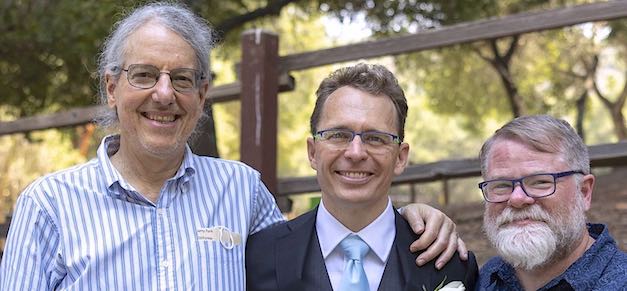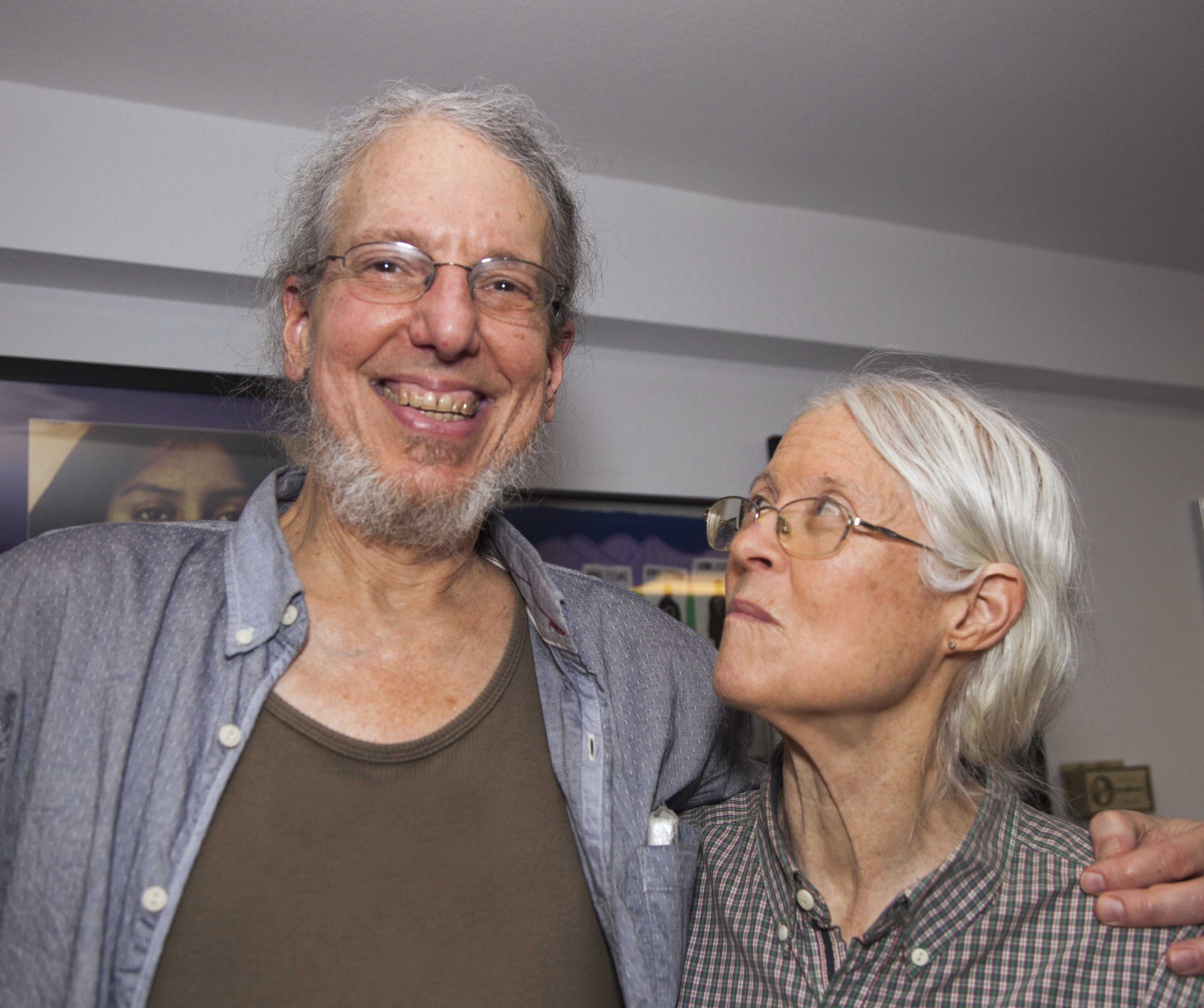Remembering Scott Weikart
We at HRDAG are devastated by the loss of Scott Weikart, who died on August 15, most likely from complications from his kidney disease. Our hearts are very heavy.
Scott spent his life thinking about how to use his prodigious skills to make the world better for other people. Soon after he got his PhD in Computer Science in 1979, he founded Community Data Processing with Dave Offen in 1981. They used partly-working hardware discarded by Hewlett-Packard’s research center to cobble together (what we now call) servers. They used these machines to offer tools to activists working on the environment, women’s rights (thanks to his wife, JoAnne!), and supporting the people of Central America in their struggles against violent dictatorships.
I wouldn’t meet Scott in person for another 15 years, but I first used Scott’s work through Peacenet. While I was a graduate student at the University of Michigan in the late 1980s, I read voluminous reports about human rights violence and political conditions in El Salvador, Nicaragua, and Guatemala. The reports by journalists and activists on the ground were an essential support for the US-based movement in solidarity with the people in those countries. Remember that information moved almost exclusively by paper mail in this era, and you could only publish what you could afford to print and send. These daily electronic reports enabled student activists to be more deeply informed about las coyunturas than just about anyone, including academic area specialists and journalists. It was a heady power.
We got the reports because Scott’s technical framework made it possible to share. In the 1980s, it was wildly innovative to pass text through computer networks instead of paper mail or fax. Community Data Processing evolved into Peacenet, which evolved into the Institute for Global Communications (IGC) and the broader network of the Association for Progressive Communications. With each organizational iteration, more groups in more regions gained the ability to share reports with people who could use the reports for action. Scott was the original seed for all this progress.
I met Scott at Benetech in 2000 where he was a legendary linux systems administrator. We immediately hit it off, riffing on free software and how much fun we had hacking code. We had a few adventures, including a memorable 2002 walk among spring wildflowers off Skyline Blvd with JoAnne and another free software legend, Lenny Foner. I had been using linux for a few years at that point, but listening to Lenny and Scott deepened my commitment to free software—and it motivated me to work more closely with Scott, which we accomplished by moving to Benetech in 2003.
At Benetech, Scott was of course central to our design of Martus. He imagined and built the server-side tools that allowed human rights groups to store their encrypted data on the “cloud” we created with linux servers around the world. This was 2003, long before cloud storage was a consumer product. We were early worriers about the authenticity of code we received and published (does it have a secret back door?), and Scott pushed our security methods farther than anyone. He tirelessly supported our partners who ran their own servers in Thailand and Colombia, and he also designed and managed Benetech’s various servers that did the same work.
Throughout 2003 to 2007, Scott managed our hand-built database deduplication tools. In the era before we used our modern pipeline (developed originally by Scott and Jeff Klingner in 2006-2007), Scott’s vast collection of SQL+python rules coordinated the matching decisions that HRDAG’s Michelle Dukich and others made by reviewing pairs of records. He meticulously documented every decision, every rule, and every chunk of code. His sprawling, constantly updated FAQs and their associated command-line search tools became foundational learning resources for decades of HRDAG staff, students, interns, and fellows.
Scott’s rigor in the matching and database management for our project with the Truth and Reconciliation Commission in Sierra Leone was the beginning of the practices that became Principled Data Processing. At a retreat in Bolinas in 2007 (I think), Scott, Jeff Klingner, Romesh Silva, and I formalized the principles that govern HRDAG’s work to this day: don’t mix inputs, outputs, and code; everything that changes the data must be in script managed by other scripts; everything must be recalculable.
When HRDAG left Benetech in 2013, Scott immediately volunteered to help us run servers (we had to nag him constantly to send us invoices for his consulting time, and he regularly refused to accept payment). He configured and managed HRDAG’s server, eleanor, for a decade. Along the way, he configured and ran servers for us in Colombia and on AWS. He built two different systems called snap, one that enabled us to keep data in version control, and another that helped to to keep local, closely-versioned backups.
Alongside his technical work, Scott was a gifted teacher. He regularly met with HRDAG junior staff, interns, and fellows, and he shared his encyclopedic knowledge of unix techniques and ideas. So many benefited.
As I write these notes, I’m deeply impressed by what Scott taught us: free software, Martus, record linkage, rigorous software development and testing, and a profound and unshakeable commitment to sharing technical knowledge with everyone around us. HRDAG’s core values all have a connection to Scott.
Scott was always open to being called out, always willing to learn, always willing to adapt to make others more comfortable. He was boundlessly generous.
Scott was sometimes grumpy, but he was always, always kind. If I remember one part of him, it will be how much he wore his affection on the outside: how much he opened himself to people around him, how he taught me what it means to be at the same time technically rigorous and supportive, to be helpful to people less interested in technical details, and at the most basic level, to be kind.
There are many other parts of Scott’s life, stories about, for example, his political work and the extraordinary care he gave JoAnne in the last years of her life.
If you have a story about Scott, please share it on this page created by the Association for Progressive Communications.
The HRDAG team and I already miss him so much. I believe we are and always will be in solidarity.


